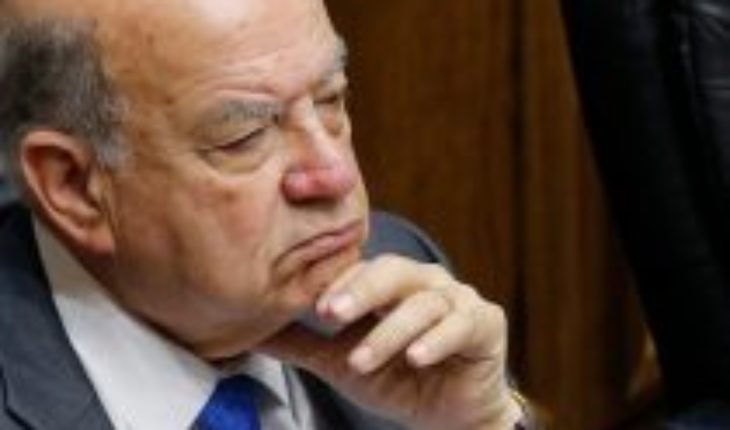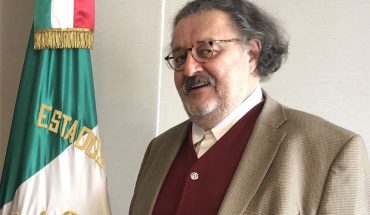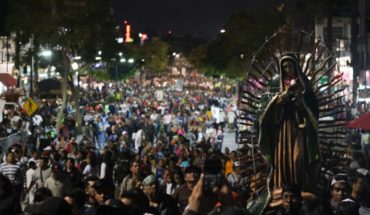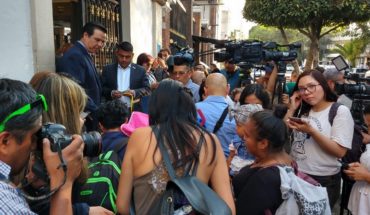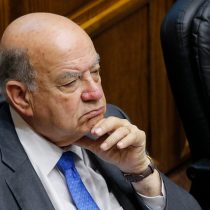
An extensive 24-point letter by socialist senator José Miguel Insulza responds to the barrage of criticism that has awakened in the militancy of the PS his controversial non-attendance in the vote of the impeachment l against the metropolitan mayor Felipe Guevara.
Insulza, together with another Socialist senator Rabindranath Quinteros, were absent from the session, which has provoked a series of internal criticisms – “some of them very aggressive,” he catalogues them – and even presentations to the Supreme Court of the community by militants calling for maximum sanctions against both lawmakers. “All abuse of institutions only discredits”
Without any glimpses of self-criticism, in his letter issued a week from the session, the former Secretary General of the OAS justified his absence and stresses that “I am not willing to participate in small grievances or to be ill-treated by social networks or others Media. I respect my party and its institutions, and I have the right to receive the same respect.”
Regarding his absence on the day of the vote, he maintains that the indictment may have been debated in the Senate room on Friday, January 30, however the Corporation’s table chose to reschedule it for February 3 and 4 due to the absence of several senators that day. “When that happened I had already arranged a trip outside Chile, assuming that the Senate would be in recess, for those same days,” he says.
“To do this I applied for a constitutional permit, commonly used in Congress and which excludes for quorum purposes the absent senator, who is not then counted among the senators in office,” he adds.
In this regard, the former minister responds to his critics and stresses that “I strongly reject that this previously scheduled and warned activity has been, as has been said, a way of “evading responsibilities”.
However, beyond the absence, Insulza makes clear his critical view of the accusation against the head of the Metropolitan regional government, noting that his own colleagues agreed that the libel “did not seem to gather characteristics to support the office of having committed a serious violation of the Constitution (…) in all the comments I heard, without exception, there was a coincidence that this “political condemnation” to the Government had already been well-founded in the in-case trial of in that regard, Insulza demarcated itself from the use of constitutional tools, noting that “any abuse of institutions only discredits them. Many of ours lived the disconstitutions of ministers in the time of Popular Unity. They were used by fascism to intimidate and polarize. But that is a right-hand practice, for which disregard of politics, increasing abstention and polarization are convenient instruments.”
In his view, “this tool seeks to appeal to emotionality and emotion, in the face of an obvious loss of the political north. This appeal to emotionality generates a false dichotomy: if it is approved it is by HRDs, if rejected it is against HRDs. Not so: HRDs are guaranteed by dictating laws for this purpose, investigating violations of HRDs that have occurred, sanctioning them and repairing human victims. Constitutional accusations, which appeal to emotion, give an illusory sense of protection to HRDs. If no further investigation and sanction of human rights are punished, no standard of justice is met.”
“Many of our selve the violent”
Insulza insists that he has not committed indiscipline with regard to the political line of the PS, noting that “I have not had any differences with my party or my bench in relation to the main issues of social mobilization that the country has been living for four months,” he adds that he has ” explicitly condemned human rights violations, directly holding the Government accountable for them” and recalls that he voted favorably against former Interior Minister Andrés Chadwick and participated in the gestation Constitutional Agreement.
However, he admits that “I have other differences with some colleagues” first in terms of the “low value” given to the governments of the Concertation and the New Majority. “It is sorry to see that many who were ministers, trusted staff, official parliamentarians and partisan leaders now relativize or denote the progress of years. Chileans may have a bad memory, but does anyone think we can make them forget that we were in government all that time?” he said.
The other issue of disagreement is on the subject of violence. “After four months of this conflict, street violence tends to become epidemic and self-nomise for the social movement. Those who practice it are not the vanguard of any revolutionary movement (…) And yet many of ours still celebrate the violent or at least benevolent to them. The worst part is that the object of their abuses are ordinary people,” he notes, adding that the action of these groups “increases the fear of the population and is an enabling tool of the right on the campaign against the New Constitution.”
“An additional risk of ambiguous attitude to violence is in its use for the purpose of political intimidation. There are some who want to impose their point of view with verbal violence and physical threat; that’s the opposite of democracy. What’s the point of demanding with violence and threats that everyone act in accordance with our own will? If many act under threat of deal or insult; if we make them dance by force, even if they don’t want to do it; if they become “traitors” and “sold” whenever they disagree; we have gained nothing for a democracy that is not compatible with fear,” he says.
At the end, he emphasizes that “I believe that this crisis is an opportunity for progressive forces to work together, for a more just, democratic and peaceful country (…) But to achieve this great national agreement we must recognize that democracy is diversity; dictatorship has only one opinion, democracy has many. And that’s why unity is so hard to build; because it requires tolerance and respect. To win the April plebiscite, in order to have a Constitution that is of all Chileans, we must impose peace, respect and civic dialogue as the only democratic practice.”

